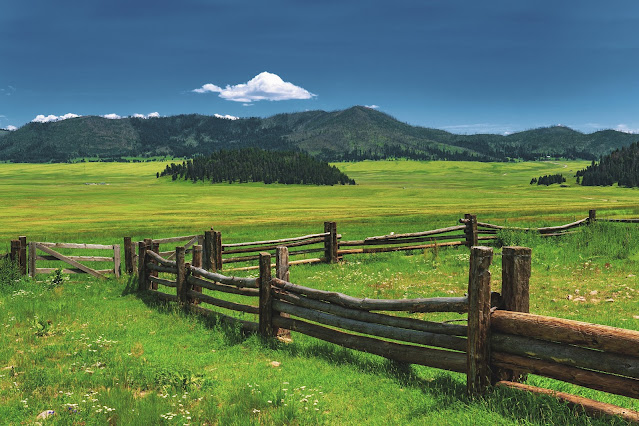Wild West Sayings We Use Today, Part 34
Take a Shine To
An individual who develops a fondness for a person, animal, or object is said to ‘take a shine to’ someone or something.
Historical Reference: The origin of this phrase is lost in time, but we do know that it emerged in America during the nineteenth-century. It may have originated from an earlier phrase. 'To shine up to’ once meant to ingratiate yourself to someone, particularly a suitor.
The earliest print citation is from High Life in New York, Volume 1, by Ann Sophia Stephens: “If she wanted to take a shine to a Yankee, why couldn’t she a found a fellor worth a looking at?”
Example: His parents sure took a shine to you.
Historical Reference: One of the earliest print references for 'rise and shine' as a colloquial term appeared in The Testimony of William Erbery (1658) by William Erbery: “They shall so rise and shine, that the glory shall rise upon them.”
“They” in the citation refers to Christians. That’s unsurprising, when you consider that ‘rise and shine’ comes from the Bible: ”Arise, shine; for thy light is come, and the glory of the LORD is risen upon thee” (Isaiah 60:1; KJV).
Example: “Rise and shine, sleepyhead, and get ready to hoe the garden.”
The literal sense of this term, in use from the 1500s, is obvious. Farmers need to cut hay on sunny days. Weather patterns being unpredictable, a wise farmer should take advantage of a dry spell to make hay.
The phrase took on its figurative meaning by the 1600s. We still use it to suggest taking advantage of favorable conditions while they last.
Historical Reference: “Make hay while the sun shines is truly English, and could have had its birth only under such variable skies as ours.” On the Lessons in Proverbs (1852) by R.C. Trench, the Archbishop of Canterbury.
Example: To claim the store’s early-bird prices, I’d better make hay while the sun shines and check out.
‘Monkeyshines’ was used as another way to describe cutting a caper from 1819. People spoke of 'cutting monkeyshines.' 'Monkey business' cropped up in 1858. Both terms may harken to an era when monkeys were imported to America in increasing numbers to entertain audiences in circuses and zoos.
Historical References: The term appeared in “Jump Jim Crow” (1828), a song by Thomas “Daddy” Rice, considered the father of minstrelsy: “I cut so many munky shines, I dance de gallopade.” The gallop, or gallopade, was a lively country dance.
“‘I’ll boun you pulled ’em out, some o’ your shines,’ said Aunt Chloe” Uncle Tom’s Cabin (1852) by Harriet Beecher Stowe.
Example: Stop your monkeyshines and quit pestering your sister!
Example: His parents sure took a shine to you.
Rise and Shine
This phrase comes in handy to urge another person to rise from bed and get to work.Historical Reference: One of the earliest print references for 'rise and shine' as a colloquial term appeared in The Testimony of William Erbery (1658) by William Erbery: “They shall so rise and shine, that the glory shall rise upon them.”
“They” in the citation refers to Christians. That’s unsurprising, when you consider that ‘rise and shine’ comes from the Bible: ”Arise, shine; for thy light is come, and the glory of the LORD is risen upon thee” (Isaiah 60:1; KJV).
Example: “Rise and shine, sleepyhead, and get ready to hoe the garden.”
Make Hay While the Sun Shines
You may not be a farmer, but you may have been told at some point in your life to ‘make hay while the sun shines.’ This timeless proverb inserts practical country wisdom into modern times. A proverb, if you don’t know, is a saying that crams a lot of wisdom into few words. ‘Make hay while the sun shines’ definitely qualifies.The literal sense of this term, in use from the 1500s, is obvious. Farmers need to cut hay on sunny days. Weather patterns being unpredictable, a wise farmer should take advantage of a dry spell to make hay.
The phrase took on its figurative meaning by the 1600s. We still use it to suggest taking advantage of favorable conditions while they last.
Historical Reference: “Make hay while the sun shines is truly English, and could have had its birth only under such variable skies as ours.” On the Lessons in Proverbs (1852) by R.C. Trench, the Archbishop of Canterbury.
Example: To claim the store’s early-bird prices, I’d better make hay while the sun shines and check out.
Monkeyshines
Monkeyshines, a colloquial expression dating from the early 19th century, describes a mischievous prank or otherwise boisterous behavior. It is one of many slang comparisons of humans to primates (‘monkey business,’ ‘monkeying around,’ ‘more fun than a barrel of monkeys,’ and the like). The ‘shine’ part may come from an obsolete nuance of ‘shine’ that denoted a party, ruckus, or commotion.‘Monkeyshines’ was used as another way to describe cutting a caper from 1819. People spoke of 'cutting monkeyshines.' 'Monkey business' cropped up in 1858. Both terms may harken to an era when monkeys were imported to America in increasing numbers to entertain audiences in circuses and zoos.
Historical References: The term appeared in “Jump Jim Crow” (1828), a song by Thomas “Daddy” Rice, considered the father of minstrelsy: “I cut so many munky shines, I dance de gallopade.” The gallop, or gallopade, was a lively country dance.
“‘I’ll boun you pulled ’em out, some o’ your shines,’ said Aunt Chloe” Uncle Tom’s Cabin (1852) by Harriet Beecher Stowe.
Example: Stop your monkeyshines and quit pestering your sister!
Over to You
Thanks for riding along into another fun adventure with words. I’d love to know your thoughts on today’s sayings. Did any surprise you? Have you used any of them? Were any unfamiliar? Which is your favorite? Leave a comment and let me know.What’s New with Janalyn Voigt
I’ve decided to celebrate spring as my personal new year. The season of emerging life is the best time for new beginnings. My editor needed more time before she could take on my manuscript. That means I can give The Whispering Wind a better polish before turning it in.
Funny how that went. The story came so readily that I should have known God would make a way for it. I can’t count the number of times I’ve had to give a writing project to God, only to receive it back. I had no idea at the beginning of my writing career that the measure of success would not be book sales, social media likes, or accolades—but surrender.
Learn more about me and my books at the website for Janalyn Voigt.









Thanks for continuing these fun posts! The least familiar to me is monkeyshines. All of the others I have heard and maybe even used a time or two. Am I just making one up or is there also one that speaks of foolery or playing a joke, like "I'm just shining you on".
ReplyDeleteHi, Connie. You aren't imagining things. Shine you/me/him/her/them on is a slang term we use nowadays. It seems to have originated later (Likely the 1950s), rather than before or during Wild West days. I think monkeyshines is used more in some areas of the country than others. It's one of those fun-to-say words we still use that had a heyday in the past.
ReplyDeleteYou left out moonshine. LOL!
ReplyDeleteI certainly did! I'll have to remedy that next month. :)
Delete